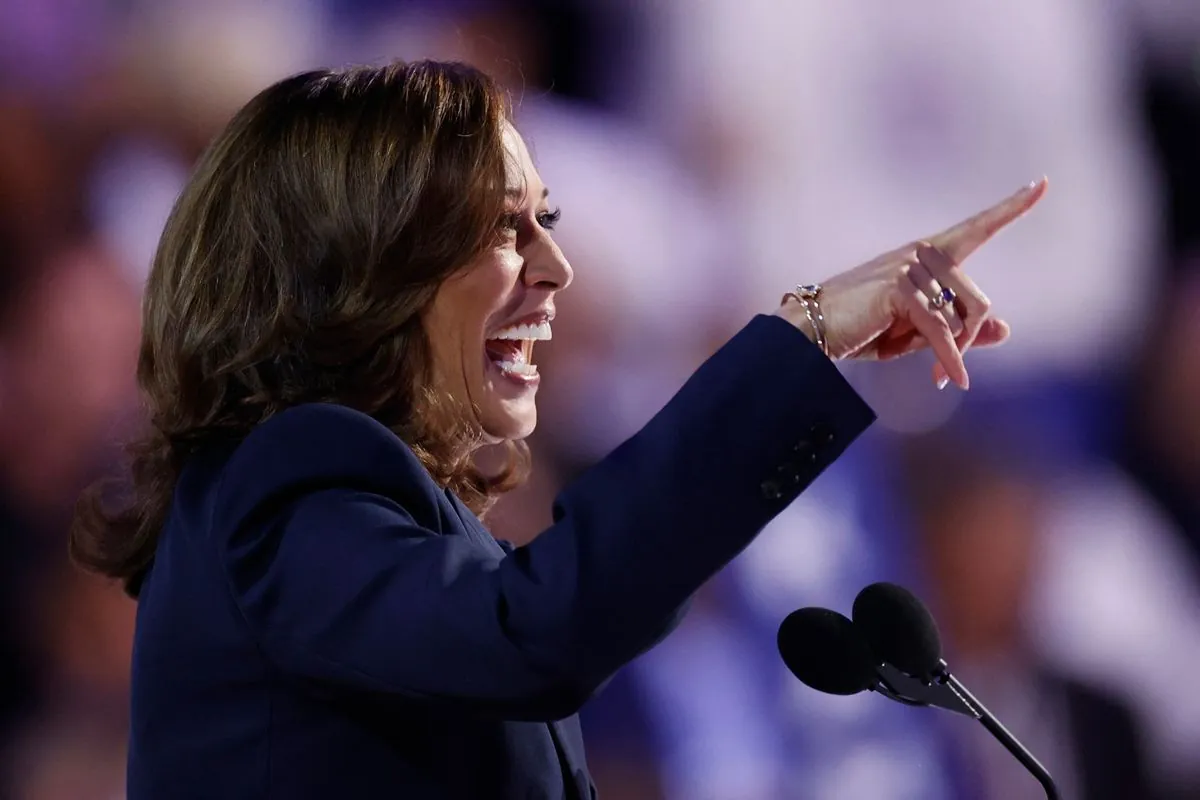In a historic moment for American politics, Kamala Harris has become the first woman of Black and South Asian heritage to accept a major party's presidential nomination. The Democratic National Convention in Chicago served as the backdrop for this landmark event, showcasing the nation's progress in diversity and representation.
Harris, born to immigrant parents from Jamaica and India, focused her acceptance speech on her multicultural upbringing and the values instilled by her family. She paid tribute to her roots, saying, "My mother was a brilliant, five-foot-tall, brown woman with an accent, and as the eldest child, I saw how the world would sometimes treat her." This personal anecdote resonated with many Americans who see themselves reflected in families like hers.
The convention highlighted the changing demographics of the United States. According to the U.S. Census Bureau, 12.5% of U.S. residents identified as two or more races in 2022, a significant increase from 3% a decade earlier. This shift underscores the growing importance of representation in American politics.
Harris's nomination comes at a time when the nation continues to grapple with its history of racial inequality. The United States has a complex past, including centuries of slavery and decades of legal and social discrimination against African Americans and other minorities. The convention acknowledged this history while celebrating the progress made.
"I know she's watching us tonight, as a Black woman stands up to accept the nomination for president of the United States."
The event also showcased Harris's connections to her heritage and education. She is a graduate of Howard University, a historically Black institution, and a member of Alpha Kappa Alpha Sorority, Inc., the oldest Greek-letter organization established by African American college women. These ties have played a significant role in shaping her identity and political career.
Harris's journey to this historic nomination has not been without challenges. She has faced criticism and false claims about her racial identity from political opponents. However, supporters see her nomination as a testament to the progress made in representation and diversity in American politics.
The convention featured speakers who proudly noted Harris's race and background. Maryland Governor Wes Moore emphasized the ongoing struggle for racial progress, stating, "That's the underlying issue that I think we still very much wrestle with as a society."
As the first woman, first African American, and first Asian American to be elected Vice President in 2020, Harris has already broken numerous barriers in American politics. Her acceptance of the presidential nomination marks another significant milestone in the nation's history.
The enthusiasm among delegates and supporters was palpable. Shannon Nash, co-founder of Tech for Kamala, traveled from the Bay Area to Chicago to witness the event, saying, "To be able to tell my grandkids I was here when it happened is just super important."
As the United States continues to evolve and become more diverse, Harris's nomination represents a pivotal moment in the ongoing journey towards a more inclusive and representative democracy.
